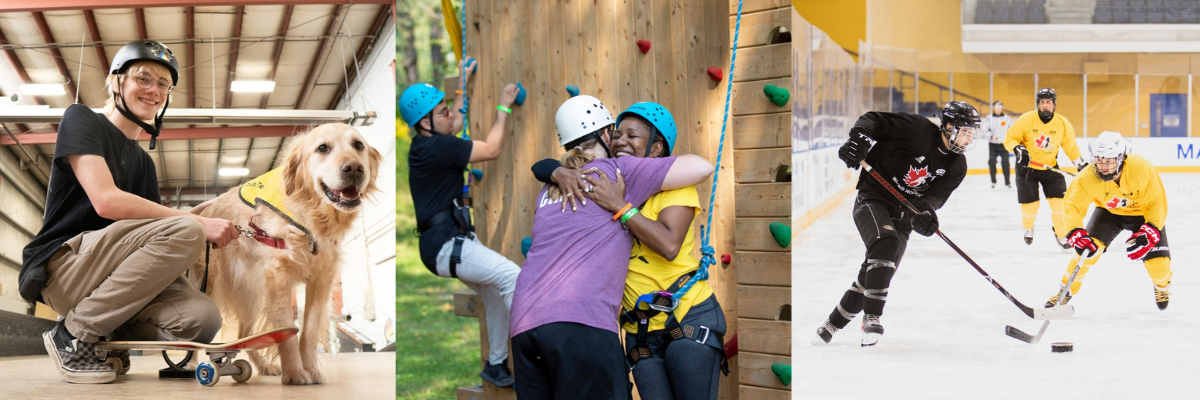By: Curtis Ruttle
CNIB National Youth Council Member

As a young person living with sight loss, people often ask me what extracurricular activities I participate in. You name it; I've tried it: swimming, cycling, Goalball, skiing, hockey, and everything in-between.
I've never let my visual impairment hold me back from doing the things I love, and I've never been told that I wasn't allowed to try something.
Participating in activities as a young person teaches you essential life skills and has many social, emotional and developmental benefits.
Whether it's a team sport like hockey or a solo activity like skateboarding, recreational activities are an outlet for stress, give us the ability to be creative, teach us how to overcome challenges, and set personal goals.
There are many groups and adaptive sports organizations out there that can introduce you to new athletic opportunities.
I run an accessible skateboarding program where we make minor adaptations to skateparks to create a safe, accessible, and inclusive skatepark experience.
I learned to ski and snowboard with the Canadian Association of Disabled Snowsports. They have trained and certified instructors to ensure the safest learning environment – and all of them are very understanding and accommodating!
Canadian Blind Hockey offers a variety of hockey programming for children, youth and adults, including introductory try-it sessions, development camps, regional and national competitions.
These programs only scratch the surface when it comes to accessible sports. There are so many opportunities available for you to get out there and get moving!
